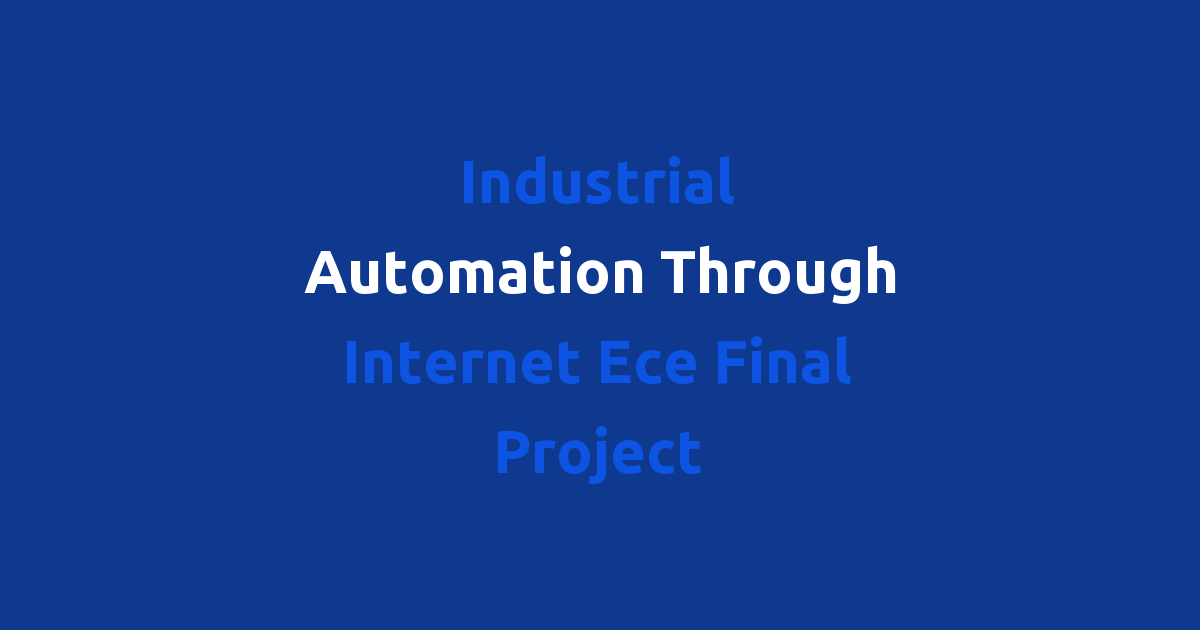Final project on internet-based industrial automation for ECE students.
Industrial Automation through Internet: ECE Final Project
Introduction
In today’s digital era, industrial automation has become a crucial aspect of enhancing productivity and efficiency in various industries. With the integration of internet technology, automation processes can be conducted remotely, providing convenience and flexibility to the industrial sector. This final project focuses on the development of a system that enables industrial automation through the internet, revolutionizing the way industries operate.
Problem Statement
The conventional industrial automation systems are limited by their physical and geographical constraints. These systems require manual intervention for monitoring and controlling industrial processes, leading to inefficiencies and delays in operations. There is a growing demand for a more advanced and connected approach to industrial automation that can overcome these limitations and streamline processes effectively.
Existing System
The existing industrial automation systems rely on localized control systems that are operated by personnel on-site. These systems lack the flexibility and accessibility that internet connectivity can provide. The integration of internet technology in industrial automation can enable real-time monitoring and control of processes from any location, enhancing operational efficiency and reducing downtime.
Disadvantages
The disadvantages of the existing industrial automation systems include limited accessibility, lack of scalability, and dependency on manual intervention. These systems are prone to errors and inefficiencies due to their reliance on physical control mechanisms. Moreover, the lack of connectivity hinders the monitoring and optimization of processes, leading to suboptimal performance.
Proposed System
The proposed system aims to address the limitations of the existing industrial automation systems by enabling automation through the internet. By leveraging internet connectivity, industrial processes can be monitored and controlled remotely, providing real-time insights and improving operational efficiency. The system will utilize sensors, actuators, and communication protocols to establish a seamless connection between the industrial equipment and the internet.
Advantages
The proposed system offers several advantages over the existing industrial automation systems. These include:
– Remote monitoring and control of industrial processes
– Real-time data analysis and insights
– Enhanced operational efficiency and productivity
– Reduced downtime and maintenance costs
– Scalability and flexibility in automation processes
– Improved safety and security measures
Features
The key features of the proposed industrial automation system through the internet include:
– Sensor integration for real-time data collection
– Actuator control for automated process optimization
– Internet connectivity for remote monitoring and control
– Cloud-based storage for data analytics and insights
– User-friendly interface for easy operation
– Scalability for accommodating diverse industrial requirements
Conclusion
In conclusion, the development of an industrial automation system through the internet presents a transformative opportunity for enhancing efficiency and productivity in the industrial sector. By leveraging internet technology, industries can streamline their processes, reduce downtime, and improve operational performance significantly. The proposed system aims to revolutionize the way industrial automation is conducted, paving the way for a more connected and efficient future for industries.

